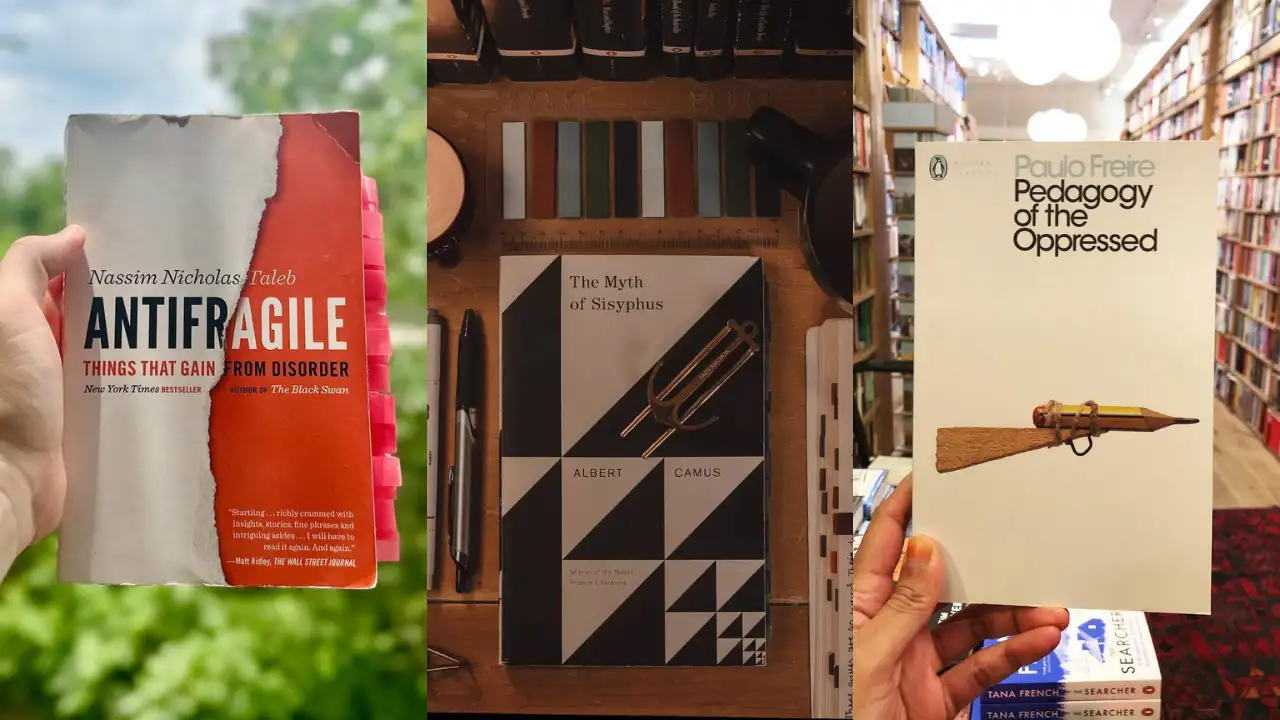By Girish Shukla
Copyright timesnownews

There are books that entertain, and then there are books that change the way we think. The latter challenge assumptions, unsettle comfort, and sharpen perception. They offer not just information but frameworks for seeing the world differently. Each of these seven works has transformed intellectual landscapes, urging readers to think with greater clarity, courage, and depth. Together, they form a guide for anyone seeking insight beyond the surface of everyday life. Also Read: 10 Books That Show Growth Isn’t Always Beautiful, But Always Worth It 1. Discipline and Punish: The Birth of the Prison by Michel Foucault Foucault’s classic unravels the history of punishment, showing how power evolved from brutal public spectacles to subtle systems of discipline and surveillance. His analysis reaches beyond prisons to schools, factories, and armies, exposing how institutions quietly shape behaviour. By examining the architecture of control, Foucault provokes readers to question authority in all its forms. The book is dense but deeply rewarding, teaching us to recognise the hidden structures that govern modern life. It is a true masterwork of critical thought. 2. Justice: What’s the Right Thing to Do? by Michael Sandel Sandel’s work is an invitation into philosophy through real-world dilemmas. He explores fairness, rights, and morality using examples ranging from government policy to everyday life. By presenting theories of Aristotle, Kant, and Rawls alongside contemporary debates, Sandel opens philosophy to readers who might otherwise find it daunting. His clarity makes complex ideas accessible without reducing their weight. The book pushes us to reflect not only on abstract questions but also on the choices we make as citizens and individuals. 3. The Structure of Scientific Revolutions by Thomas S. Kuhn Kuhn’s groundbreaking book introduced the concept of “paradigm shifts,” transforming how we understand scientific progress. Rather than a steady accumulation of knowledge, Kuhn argued that science advances through revolutions in thought. His work altered the philosophy of science and rippled far beyond into culture, politics, and education. By revealing that truth itself can be shaped by collective consensus, Kuhn forces readers to reconsider what they think of as certainty. The book is both a history of science and a guide to intellectual humility. 4. Antifragile: Things That Gain from Disorder by Nassim Nicholas Taleb Taleb extends his earlier work on uncertainty by proposing a radical idea: some systems benefit from shocks and chaos. Unlike resilience, which resists stress, antifragility thrives on it. Drawing examples from finance, medicine, and history, he shows how embracing volatility can lead to strength. The book challenges our instinct to control and predict, instead urging us to design lives and systems that adapt. It is provocative and often confrontational, but its insights linger, reshaping how we think about risk and growth. 5. The Myth of Sisyphus by Albert Camus Camus confronts the question of whether life has meaning in a universe without certainty. Using the figure of Sisyphus, condemned to push a boulder endlessly uphill, he presents the philosophy of the absurd. Yet rather than despair, Camus urges defiance and joy in the struggle itself. His reflections on art, freedom, and resistance continue to inspire readers seeking clarity in uncertain times. The book does not provide easy answers but instead opens space for courage, honesty, and authentic living. 6. Metaphors We Live By by George Lakoff and Mark Johnson Lakoff and Johnson’s pioneering book reveals how metaphors shape the way we think, speak, and act. Far from decorative language, metaphors structure our understanding of time, love, politics, and everyday experience. The authors show how phrases like “time is money” frame our decisions and values. By exposing these hidden patterns, the book sharpens awareness of language’s power. It transforms communication into a subject for reflection, reminding readers that words shape worlds. It remains one of the most influential works on language and thought. 7. Pedagogy of the Oppressed by Paulo Freire Freire’s landmark work challenges traditional models of education that treat students as passive recipients of knowledge. Instead, he advocates dialogue, critical thinking, and liberation through learning. Rooted in his work with impoverished communities in Brazil, the book carries global resonance. It asks how education can empower rather than dominate, questioning the politics of teaching itself. For anyone who believes in the transformative power of ideas, Freire offers both a critique of old systems and a vision for a freer, more humane future. Also Read: 10 Non-Fiction Books That Changed My Opinion on Something I Swore I’d Never Budge On These seven books resist easy categorisation. They span philosophy, science, politics, and education, yet all share a common goal: to expand how we think. They remind us that intellectual depth is not about memorising facts but about cultivating awareness, questioning assumptions, and embracing complexity. Reading them is not only an act of learning but also an act of transformation. They show that thinking itself is a journey, one that demands courage and rewards us with greater insight into both the world and ourselves.



